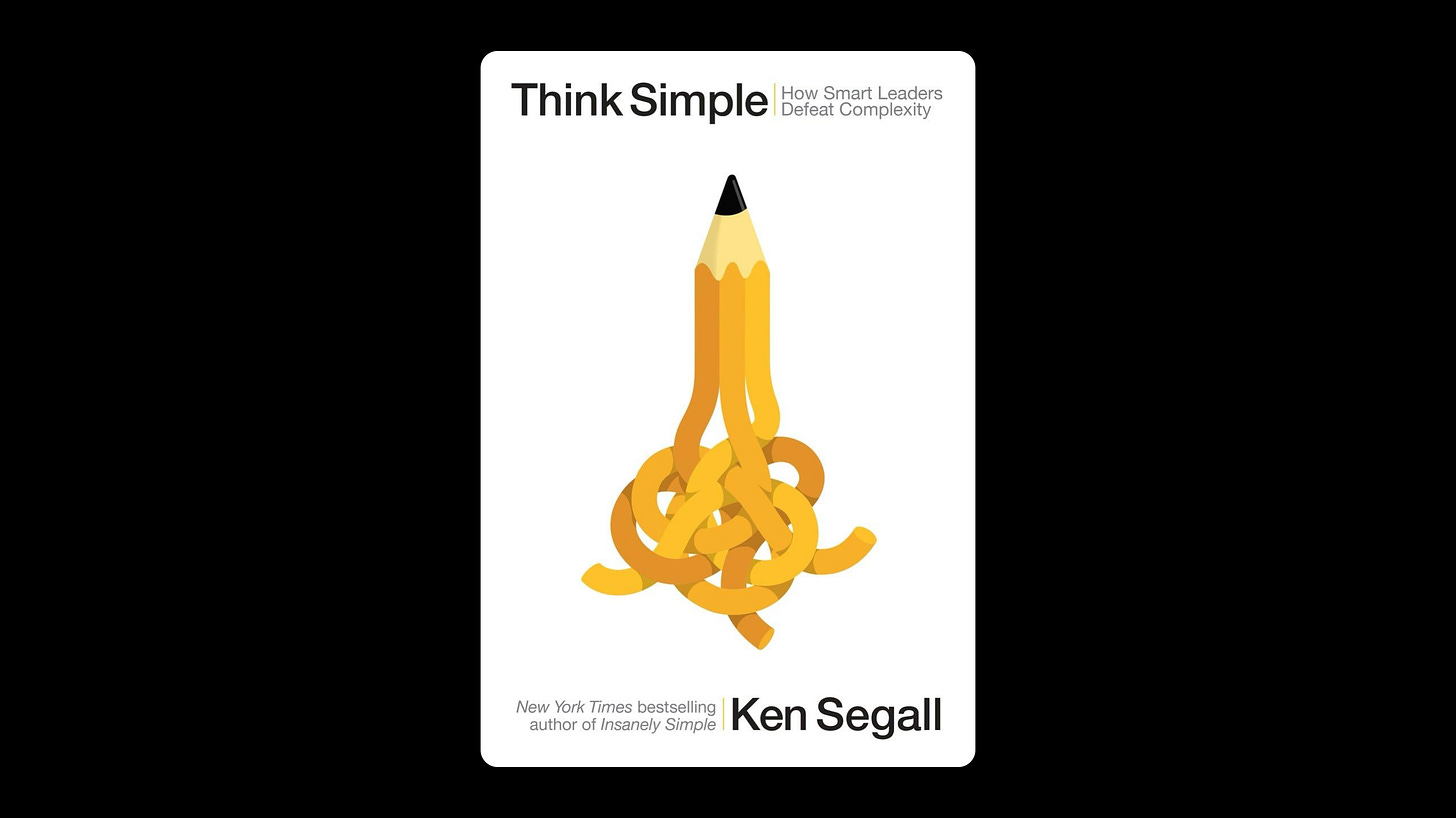By Ken Segall
Think Simple (2020) champions the power of simplicity in crafting successful businesses, spotlighting giants like Hyundai and Whole Foods.
Written by Apple insider Ken Segall, this guide dives into the battle against complexity, spotlighting the core principles that drive winning organizations. Segall distills lessons from the forefront of innovation, urging us to cut through the noise and focus on what truly propels a business forward.
About the author
Ken Segall, the mastermind behind the New York Times best-seller "Insanely Simple," brings unparalleled insights from his twelve years as Apple's creative director, where he worked closely with Steve Jobs.
He was the visionary leader of the iconic "Think Different" campaign and the genius who coined the iMac name, setting the stage for the i-branding legacy that would follow with the iPod, iPad, and beyond.
Simplify Your Business: Lessons from Apple
Imagine the elegance of Apple's lineup: the gleaming Platinum MacBooks, the ultra-slim iPhones. Each product not only captivates with its design but also embodies Apple's hallmark of simplicity. This isn't just about aesthetics; it's Apple's core strategy—making everything from product design to retail spaces, even team management, fundamentally simple. Why? Apple knows simplicity isn’t just appealing—it’s powerful. It's what consumers desire and what motivates employees, driving a company to unparalleled success.
Yet, achieving simplicity is no small feat. It demands peeling back the layers of corporate complexity, refining a brand’s essence, and honing a product line to its most impactful form. Fortunately, these insights offer the tools and wisdom from some of the business world’s brightest minds to help you master simplicity.
Dive into these insights to discover:
- The art of making complexity look effortless, as demonstrated by Ben & Jerry’s;
- The impact of Steve Jobs’ direct leadership style; and
- The story of a Communist-era beverage that rivaled Coke and Pepsi.
The Paradox of Simplicity: Effortlessly Complex
In our quest for advancement, complexity becomes a byproduct of human innovation. From the convoluted bureaucracies to the bewildering assembly instructions for our gadgets, complexity is a staple of modern life.
Yet, paradoxically, simplicity captures our hearts. We're drawn to user-friendly products, clear communicators, and brands with a straightforward identity. The question then arises: why do we complicate matters?
The truth is, simplicity is an art form that's challenging to master.
The essence here is that simplicity isn't about the absence of complexity but about the art of concealing it.
Consider the Apple MacBook, a marvel of simplicity in user experience, yet under its hood lies a complexity that would baffle most users. Or take Ben & Jerry’s ice cream, which might seem simple at first glance but behind its creamy textures and chunky mix-ins lies a tale of innovation and engineering prowess. Initially, conventional ice cream machinery couldn't accommodate the large mix-ins that define Ben & Jerry’s. To achieve their iconic flavors, Ben Cohen and Jerry Greenfield had to reinvent the process, later facing the challenge of scaling this innovation without sacrificing those signature chunks.
Simplicity, therefore, is anything but simple. This is where Foolproof shines. As a leading digital-design agency in the UK, they create web experiences for tech giants, airlines, and banks that epitomize simplicity. Their secret weapon? Achieving “flow” - a concept from Hungarian psychologist Mihaly Csikszentmihalyi. Flow represents the pinnacle of user experience, where actions feel effortless and intuitive.
Imagine the process of booking a flight, often fraught with frustration, transformed into a smooth and enjoyable journey. The intricacies of achieving such simplicity are invisible to the user, a testament to the meticulous work of Foolproof's designers.
Thus, simplicity is the illusion of effortlessness, a facade meticulously crafted to hide the complexities within.
Keep reading with a 7-day free trial
Subscribe to The Book Summaries to keep reading this post and get 7 days of free access to the full post archives.



